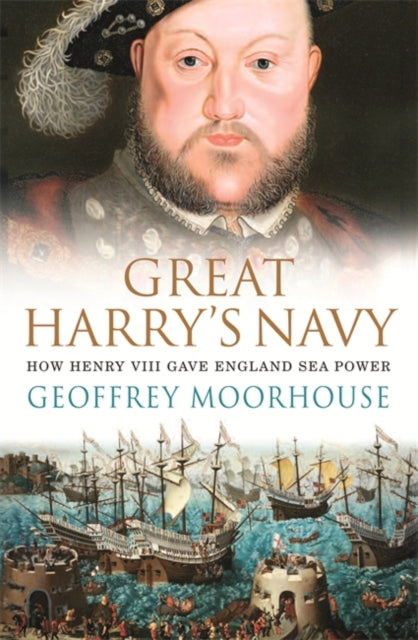Great Harry's Navy : How Henry VIII Gave England Sea Power
Usually shipped within 24 hours
UK deliveries from £5.95
Delivery & Returns
Delivery & Returns
We use the Royal Mail, DHL Express or UPS for our customers. For UK addresses, deliveries under 10kg are a standard £4.95 via Royal Mail Tracked 48 Service. For orders over 10kg and overseas customers, postage is calculated for you at checkout once you have entered your postal address. This price, does not include any potential custom charges that may apply, depending on the product or destination, as every country has very different import duties / taxes. Online exclusive products (such as trainers) will be delivered to you directly from the printer, separate from other items in your order, but your postage fee covers ALL items in your order.
If you are unhappy with your purchase, please email shop@tankmuseum.org within fourteen (14) working days of receiving your goods, and return it to us at the address below, in its original condition, unopened (with any seals and shrink-wrap intact) and we will issue you a full refund or replace it. Goods must be returned at your own cost. If the item is faulty, you do not need to return it, we will send you a replacement free of charge.
Description
Description
By Geoffrey Moorhouse
Ground-breaking history of how King Henry VIII created England's navy. It was Henry VIII who began the process of making England a first-rate sea-power. He inherited no more than seven warships from Henry VII, yet at his own death the King's Navy had 53 seaworthy ships afloat (much the same size as the Royal Navy today) manned by almost 8,000 sailors.
Henry VIII originally needed a navy to hold the English Channel and blockade the enemy while he invaded France.
Later when invasion from the continent grew serious Henry's navy fought in many actions. Moorhouse doesn't only deal with seagoing exploits. Thanks to Henry VIII dockyards were built (Greenwich and Deptford), timber had to be felled in quantities previously unknown (from land seized during the dissolution of the monasteries), and hemp (for rope) was harvested; new skills were developed, not least the gun-founders and the master shipwrights.
Some of the ships were celebrated - 'Henry Grace a Dieu' (aka 'Great Harry') was the biggest ship in the world - 1,000 tons, 122 guns, crew of 700 and the 'Mary Rose' (500 tons, 80 guns, 40 crew) became one of the most famous after she heeled over too far, took water and sank with the loss of almost all hands off Portsmouth.
![Great Harry's Navy : How Henry VIII Gave England Sea Power Book [variant_option4]](http://tankmuseumshop.org/cdn/shop/products/9780753820995.jpg?v=1748336040&width=1214)

![Great Harry's Navy : How Henry VIII Gave England Sea Power Book [variant_option4]](http://tankmuseumshop.org/cdn/shop/products/9780753820995.jpg?v=1748336040&width=88)
![Christmas Tank Museum Wrapping Paper - Two sheet pack Wrapping Paper [variant_option4]](http://tankmuseumshop.org/cdn/shop/files/DSC2318.jpg?v=1759225755&width=176)
![Great Harry's Navy : How Henry VIII Gave England Sea Power Book [variant_option4]](http://tankmuseumshop.org/cdn/shop/products/9780753820995.jpg?v=1748336040&width=640)



